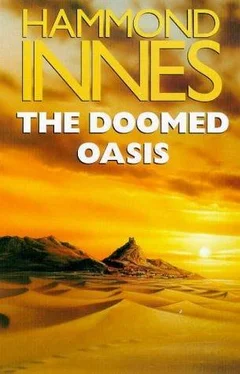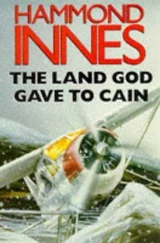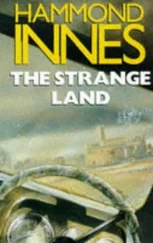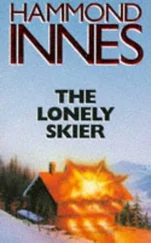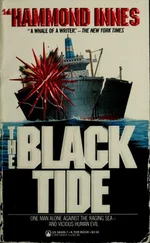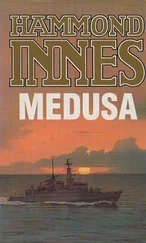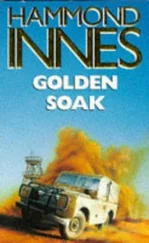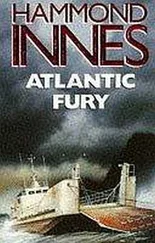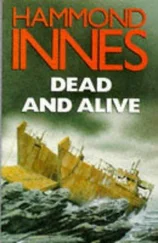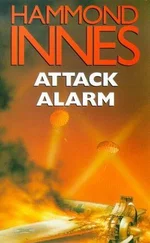Hammond Innes - The Doomed Oasis
Здесь есть возможность читать онлайн «Hammond Innes - The Doomed Oasis» весь текст электронной книги совершенно бесплатно (целиком полную версию без сокращений). В некоторых случаях можно слушать аудио, скачать через торрент в формате fb2 и присутствует краткое содержание. Жанр: Прочие приключения, на английском языке. Описание произведения, (предисловие) а так же отзывы посетителей доступны на портале библиотеки ЛибКат.
- Название:The Doomed Oasis
- Автор:
- Жанр:
- Год:неизвестен
- ISBN:нет данных
- Рейтинг книги:5 / 5. Голосов: 2
-
Избранное:Добавить в избранное
- Отзывы:
-
Ваша оценка:
- 100
- 1
- 2
- 3
- 4
- 5
The Doomed Oasis: краткое содержание, описание и аннотация
Предлагаем к чтению аннотацию, описание, краткое содержание или предисловие (зависит от того, что написал сам автор книги «The Doomed Oasis»). Если вы не нашли необходимую информацию о книге — напишите в комментариях, мы постараемся отыскать её.
The Doomed Oasis — читать онлайн бесплатно полную книгу (весь текст) целиком
Ниже представлен текст книги, разбитый по страницам. Система сохранения места последней прочитанной страницы, позволяет с удобством читать онлайн бесплатно книгу «The Doomed Oasis», без необходимости каждый раз заново искать на чём Вы остановились. Поставьте закладку, и сможете в любой момент перейти на страницу, на которой закончили чтение.
Интервал:
Закладка:
The sun vanished before it reached the horizon, hazed and purple as a mulberry. We camped at dusk where the dusty green of new vegetation spattered the sand between ribs of limestone. The camels were let graze and Salim built a fire of furze and cooked a mess of rice and meat. One of the pack beasts was in milk and we drank it warm from the same bowl. And when he’d looked at his ancient rifle, oiling it carefully, we mounted and went on again.
We travelled all that night without a break. The moon turned the desert to a bleak, bone white, and in the early hours a mist came up and it was cold. By then I was too tired to care where I was going and only the pain of the saddle chafing the inside of my thighs, the ache of unaccustomed muscles, kept me awake. The dawn brought a searing wind that whipped the mist aside and flung a moving cloud of sand in our faces. Lightning flashed in the gloom behind us, but no rain fell — just the wind and the driving sand particles.
We stopped again for food, lukewarm and gritty with sand, and then on again until the heat and the moving sand drove us into camp. I laid my head on my briefcase, covering my face with my headcloth, and slept like the dead, only to be woken again and told to mount. My nose and mouth were dry with sand and we went on and on at a walking pace that was relentless in the demands it made on my endurance. Dawn broke and the sun lipped the mountains that poked their rugged tops above the horizon to the east. Salim didn’t sing that day and as the wind died and the sand became still, the heat increased until my head reeled and dark specks swam before my eyes.
My midday we were walking our camels along the edge of a dead, flat world that stretched away into the west, to disappear without horizon in a blur of haze. There was no dune nor any outcrop of rock, no tree, no bush, nothing to break the flat monotony of it. Salim turned in his saddle. ‘Umm al Samim,’ he said with a sweep of his hand, the palm held downward and quivering. I remembered the strangled sound Sheikh Hassa had made at the mention of that name, and yet it looked quite innocent; only that unnatural flatness and the dark discoloration of water seepage revealed the quagmire that lay concealed below the crust of wind-blown sand.
We followed the shore of the sands for about an hour whilst the sun beat down on us and the dull expanse shimmered with humidity. And then, by the gnarled remains of some camel thorn, we dismounted and started into the quicksands, leading our camels.
Close in-shore there were patches of solid ground, but farther out there was nothing that seemed to have any substance, the ground and air both quivering as we struggled forward. I can’t remember any sense of fear. Fear is a luxury requiring energy, and I had none to spare. I can, however, remember every physical detail.
It was a sabhkat on the grand scale, and beneath the hard-baked crust my feet touched slime. At times it was difficult to stand at all, at others I broke through to the black filth below, and at every step I could feel the quiver of the mud. The camels slithered, bellowing in their fear, in constant danger of losing their legs and falling straddled. We had to drag the wretched beasts, even beat them, to keep them moving. This and the need to be ready to give them some support when they slipped did much to keep my mind from the filthy death that threatened at every step. And whenever I had a moment to look ahead, there was the Umm al Samim stretched out pulsating in the humid glare, innocent-seeming under its crust of sand, yet deadly-looking because it was so flat and level — as level as a lake.
And it seemed to have no end. It was like the sea when visibility is cut by haze. But here there were no buoys, no markers that I could see, nothing from which Salim could get his bearings. Yet once I saw the old tracks of camels, the round holes half filled with sand, and whenever I broke through to the mud below, my feet found solid ground before I was in farther than my knees; in some way that was not apparent to me Salim was following a rib of rock hidden below the surface of the sand.
Time had no meaning in the pitiless heat and the sweat rolled dripping down my back. I had a moment of panic when I would have turned and run if it had been possible. But then a camel slipped and a moment later Salim seized my arm and pointed ahead with his rifle. Little tufts of withered herbs lay limp in isolated clumps, and on the edge of visibility a gnarled thorn tree shimmered like a witch, its gaunt arms crooked and beckoning.
With the first of the withered herbs I felt the ground under my feet. It was hard and firm, and when I set my foot down nothing quaked, there was no gurgling sound, no sound of imminent break-up of the crust. Where the camel thorn stood there was naked rock and I flung myself down, revelling in the scorched hardness of it.
We were on a little island, raised imperceptibly above the flat level of the quicksands, and it was as far as Salim had ever penetrated. I watched him as he searched for Khalid’s tracks, stopping every now and then to call, a high-pitched, carrying sound made with his hands cupped round his mouth. But the steaming heat absorbed his cries like a damp blanket and there was no answer.
In the end he gave it up and began prodding with his camel stick along the edge of the sands. Twice I had to pull him out, but finally he found firm ground beneath the crust and leaving the camels we started forward again, moving a step at a time, watching the quiver of the crust and prodding with the stick.
Behind us our tracks vanished into nothing. The rock island vanished, too, the white glare swallowing even the bulk of our camels. We were alone then, just the old man and myself in a little circle of flat sand that quaked and gurgled and sucked at our feet.
I don’t know how long we were feeling our way like that. Once we saw the faint outline of a camel’s pad, but only once. And then suddenly thorn trees throbbed in the haze ahead, looking huge, but dwindling as we approached the firm ground on which they stood. They were no more than waist-height and standing beside them, Salim cupped his hands and called again.
This time his cry was answered, a human voice calling to us, away to our left where the sands ran flat. I thought it was imagination, perhaps an unnatural echo of Salim’s voice, for there was nothing there; an empty void throbbing in the heat, and the air so intensely pale it hurt the eyes.
And then suddenly the void was no longer empty. A man had materialized like a genie out of the heat of a furnace, his face burned black by the pitiless heat, his lips cracked, his ragged beard bleached by the sun, his hair, too, under the filthy headcloth.
He came forward and then stopped, suddenly suspicious, reaching for the gun slung at his shoulder. ‘Salim!’ Recognition brought a quick flash of teeth, white in the burnt dark face. ‘Wellah! Salaam alaikum.’ He came forward and gripped Salim’s wrist in a Bedou handclasp, whilst the old man talked, his words coming fast and high-pitched with excitement. And then the man turned to stare at me, pale eyes widening in startled disbelief. It was only when he finally spoke my name that I realized this strange nomadic-looking figure was David Whitaker. ‘It’s a long time,’ I said. ‘I didn’t recognize you.’
He laughed and said, ‘Yes, a hell of a long time.’ He reached out his hand and his grip was hard on mine. Not content with that he took hold of both my shoulders and held them as though overwhelmed by the need for physical human contact. ‘I can’t believe it,’ he said. And again, ‘I can’t believe it.’
I could hardly believe it myself. He was greatly changed. As Sue had said, he’d become a man. But even in that first glimpse of him I recognized again the quality of eagerness that had first attracted me to him. ‘So you really are alive,’ I don’t think I’d fully accepted the fact until that moment.
Читать дальшеИнтервал:
Закладка:
Похожие книги на «The Doomed Oasis»
Представляем Вашему вниманию похожие книги на «The Doomed Oasis» списком для выбора. Мы отобрали схожую по названию и смыслу литературу в надежде предоставить читателям больше вариантов отыскать новые, интересные, ещё непрочитанные произведения.
Обсуждение, отзывы о книге «The Doomed Oasis» и просто собственные мнения читателей. Оставьте ваши комментарии, напишите, что Вы думаете о произведении, его смысле или главных героях. Укажите что конкретно понравилось, а что нет, и почему Вы так считаете.
